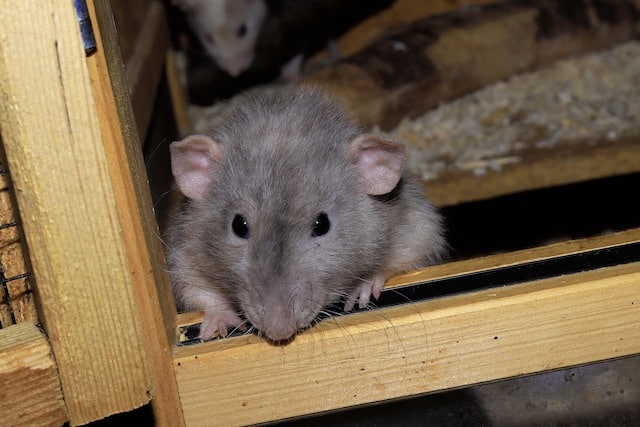
Hearing scratching or scurrying noises at night can be unsettling, especially if the animal making them sounds big. If you’re hearing what you fear are rat noises in the wall, it’s time to act. These sounds may be the first sign of a rodent problem. This post looks at the whys and wherefores of rats in the walls.
Identifying what’s happening inside the wall
If you’re hearing rat noises in the wall, you might wonder whether it’s rats, mice or even birds. Rats usually make louder, heavier noises compared to mice. Their movement often sounds like slow dragging or thudding. Mice tend to make lighter scratching sounds, especially at night. Birds can nest in roof spaces and sometimes enter wall cavities. However, their sounds are often more fluttery rather than scratchy.


Because rats are larger, they can cause more damage and pose greater health risks. They may chew wiring, insulation or pipes. These behaviours increase the risk of fire or water damage. Mice can also cause damage, but typically less severe. If you live in a terraced or semi-detached home, wall cavities are often shared with neighbours. Therefore, if rats are active in your wall, they may have entered from next door.
Rats can enter through gaps that include vents, broken air bricks or pipes. Wall cavities are attractive because they are dark and quiet. They may nest there or simply use them as a route around your home. If they nest, numbers can increase rapidly. In some cases, they may enter your kitchen from the walls.
Why rats choose your home and how to prevent it
Food left outside or in bins encourages rats. Compost heaps and bird feeders can also attract them. Once they are near your property, they may look for access points. If the cavity wall is accessible, they’ll use it to move around unnoticed. Rats are excellent climbers and can scale brickwork or drainpipes easily.


You will mostly hear rat noises in the wall at night. This is because rats are nocturnal and more active when it’s dark and quiet. They may move between wall cavities, floors and the loft. Not all walls are the same, though. Cavity walls are most commonly used by rats, but even older solid walls with cracks can be vulnerable. We recommend sealing entry points.
Maintain bins and clear outdoor areas regularly. If you hear rat noises in the wall, it’s important to act quickly. DIY efforts may help, but they are rarely enough. We provide professional London rat control services to locate the entry points and remove the infestation safely. Regular inspections also help prevent future issues.







